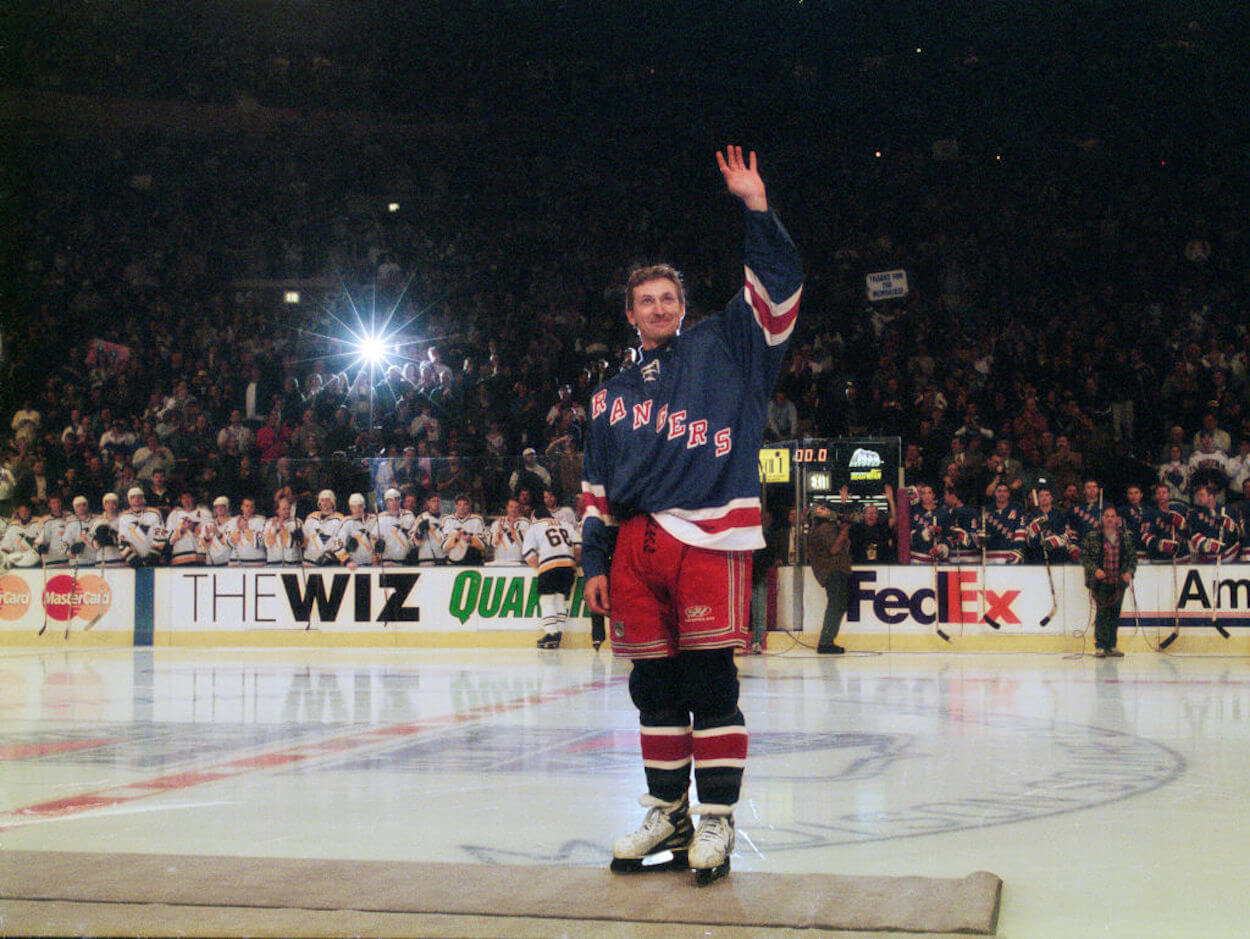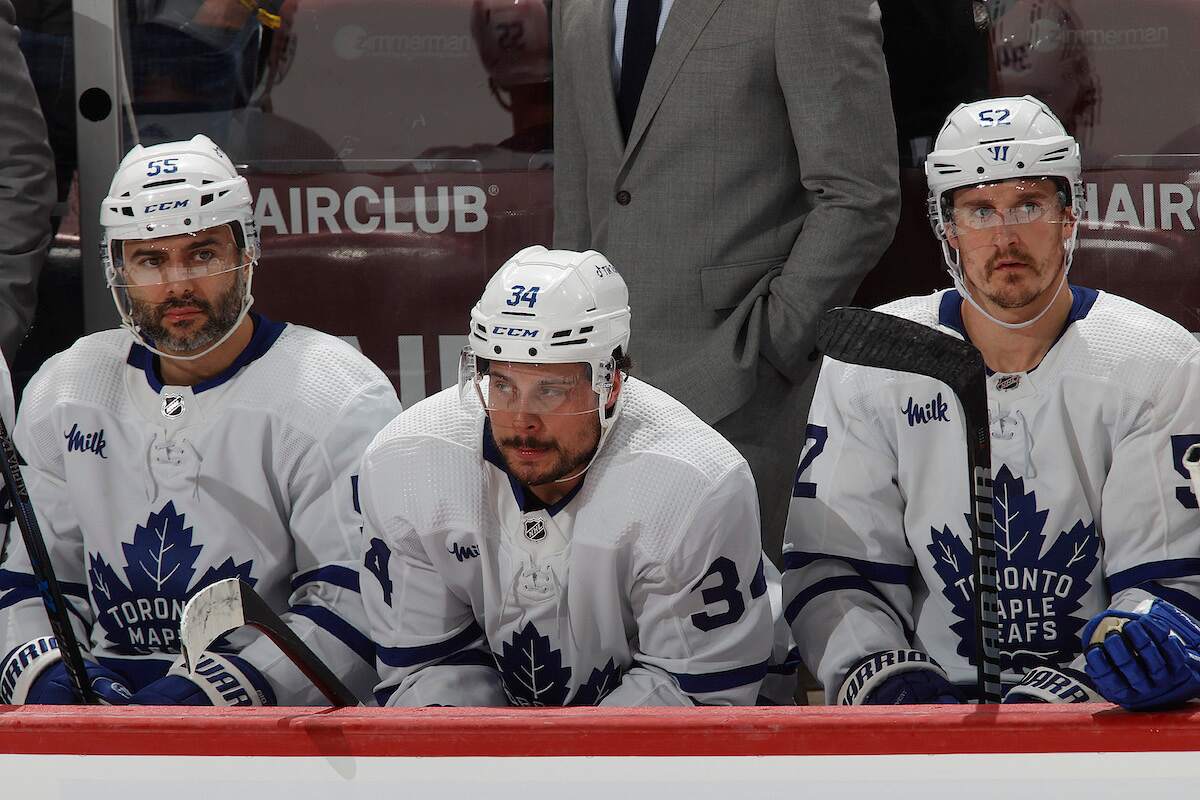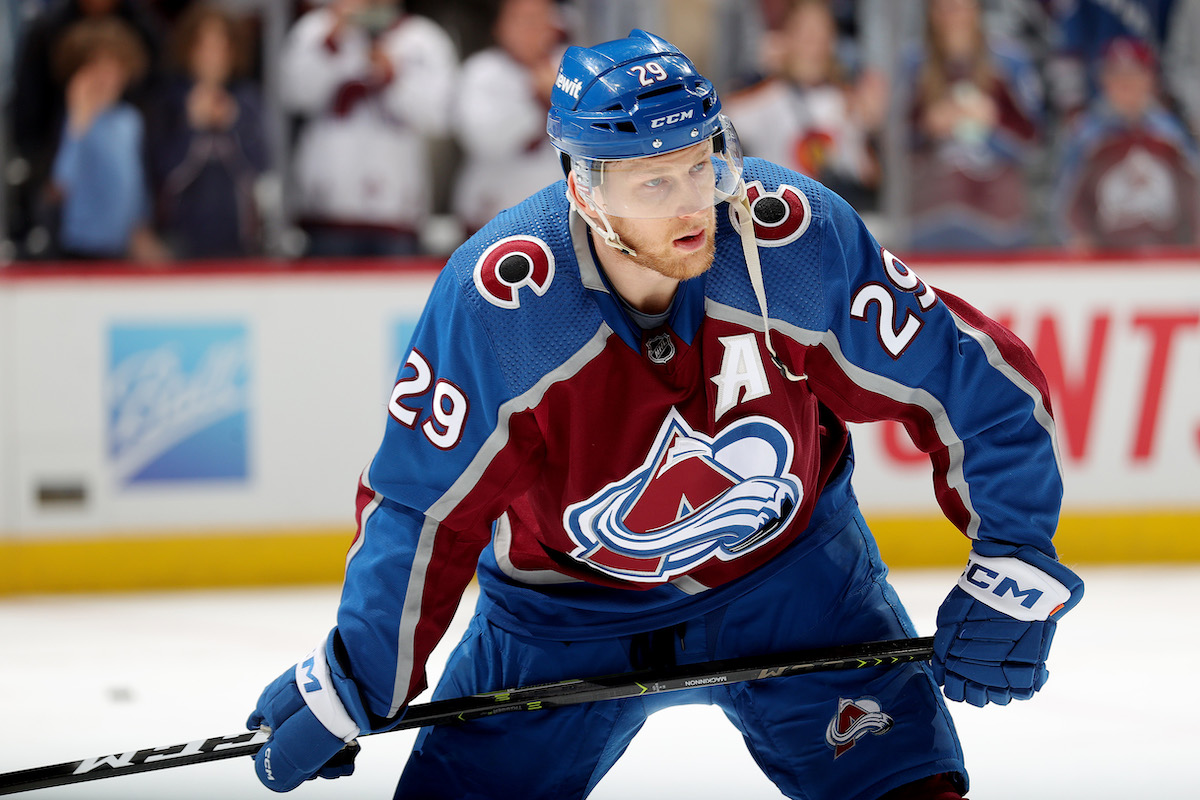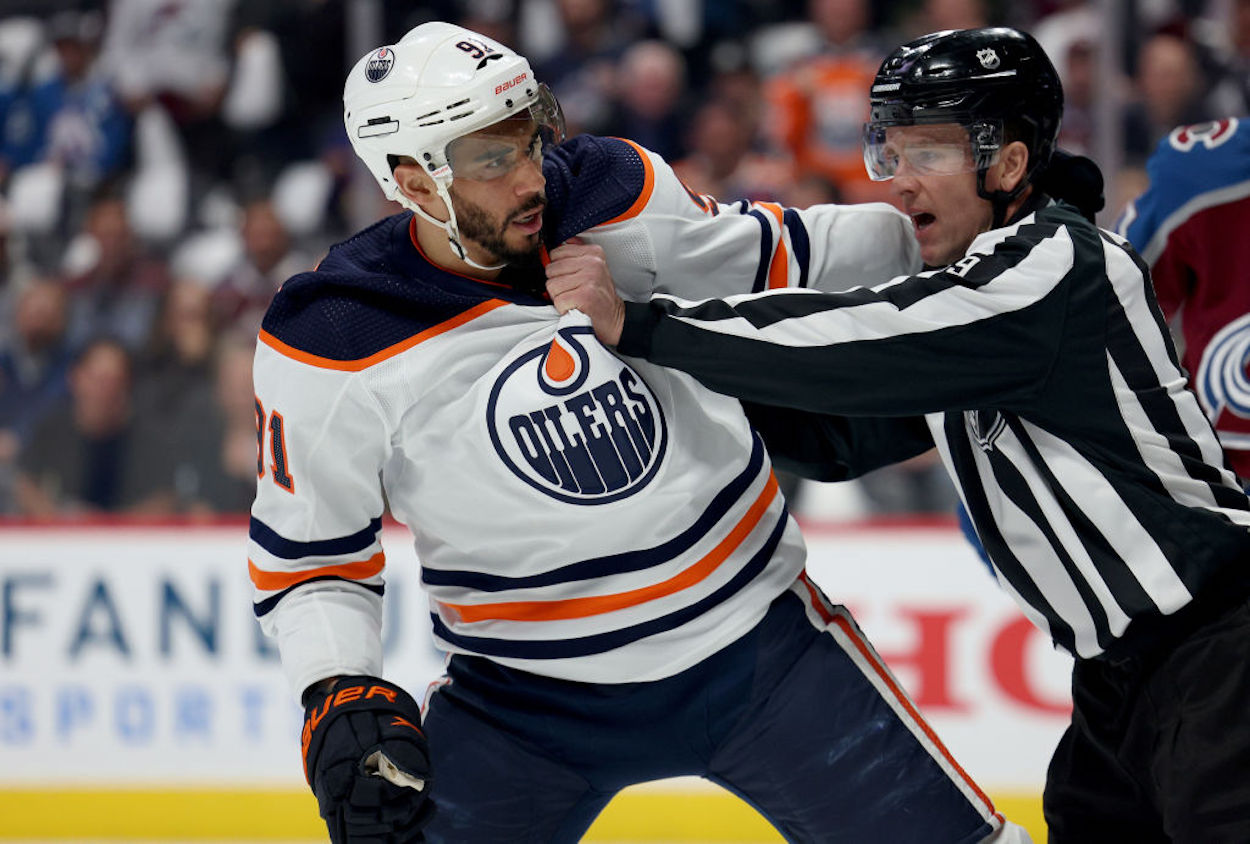
Evander Kane’s 1-Game Suspension Is Another Failure by the NHL and the NHL Department of Player Safety
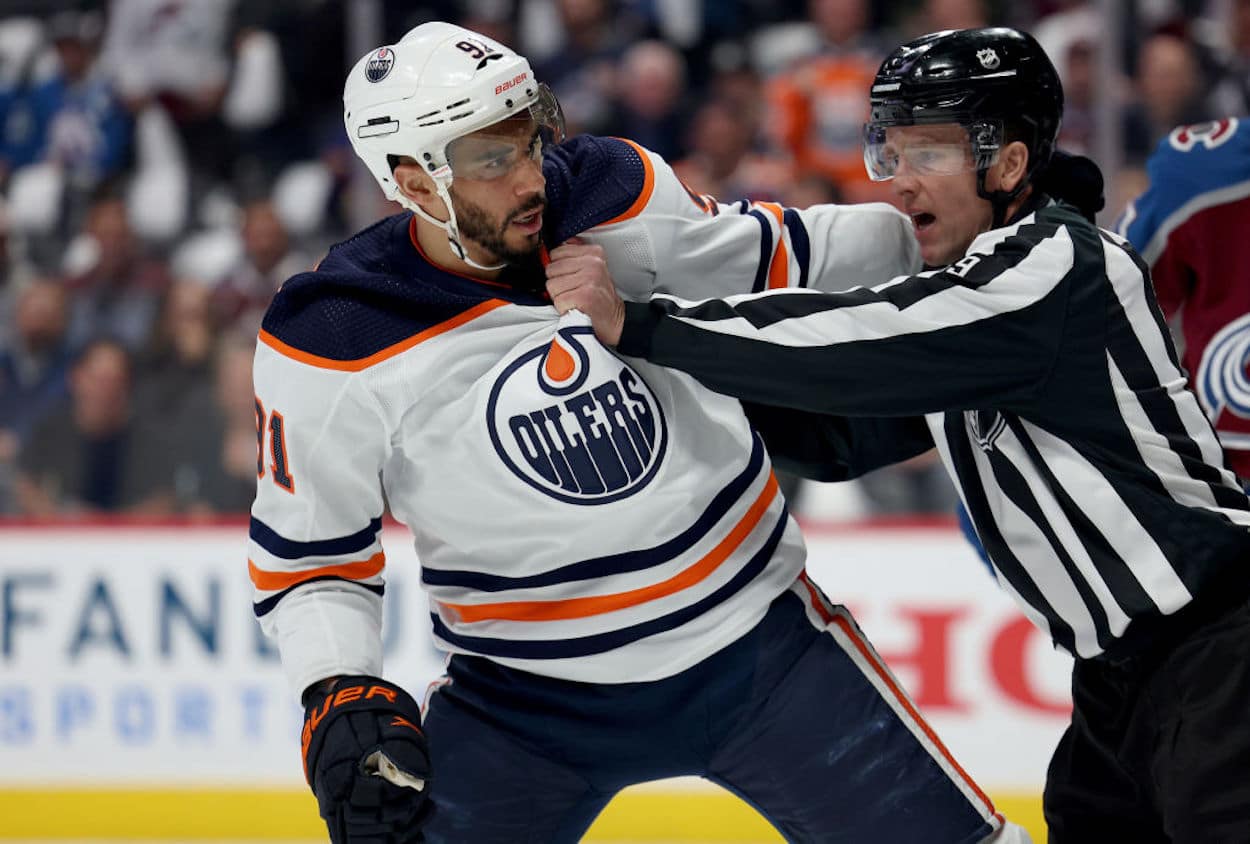
While the offensive fireworks may be stealing the show in the Western Conference Finals, that isn’t the only storyline emerging from the Colorado-Edmonton series. As you’d expect at this point of the hockey season, there’s a certain amount of physicality involved. In Game 3, however, Evander Kane crossed the line. He boarded Avs’ forward Nazem Kadri, earning himself a major and a one-game suspension.
Although that punishment could turn out to be season-ending — the Oilers are on the verge of being swept out of the postseason — it’s still not enough. Once again, the NHL Department of Player Safety (DPOS) has dropped the ball and failed to enforce a punishment that will actually make a difference.
Evander Kane only earned a one-game suspension despite a long rap sheet and an ugly hit
To be clear, no one is rooting for a player to be suspended at any point of the season, let alone during the playoffs. Evander Kane’s Game 3 hit, however, crossed the line and warranted some serious punishment.
Minutes into the contest, Kadri appeared to mishandle a puck near the boards in the Edmonton zone. Kane approached from behind and gave his opponent a firm push in the back, sending him headfirst into the boards. The Oilers’ forward was assessed a major on the play but avoided a game misconduct. The hit also landed him on the radar of the DPOS.
Here’s where things get classically NHL, though. Kane has been suspended before, missing time for boarding, cross-checking, making physical contact with an official, and elbowing during his career. The league even acknowledged that history in their official suspension video.
The hit was also obviously dangerous. While Kadri didn’t sustain a head injury on the play, he still broke his thumb crashing into the boards. At this point, it’s unclear if he’ll play again during the postseason.
All of that should add up to a lengthy suspension, right?
Kane was suspended for one game.
In fairness to the NHL, Brandon Shanahan did establish an unofficially official precedent that said postseason suspensions were essentially as ‘valuable’ as missing multiple regular-season games (h/t NBC Sports). Through that lens, it would be unrealistic to expect Kane to miss five games. One night on the sidelines, however, barely feels like a slap on the wrist.
The NHL Department of Player Safety continues to send the wrong message
Before I get any further down the rabbit hole, I do think it’s important to note that working in the Department of Player Safety is a thankless job, where any choice is going to be unpopular with at least some section of the fanbase. With that being said, though, a one-game suspension doesn’t really accomplish anything.
At the risk of seeming like I’m talking about toddlers, suspensions are supposed to be deterrents. They send the message that, if you cross a line this egregiously, you’re going to lose playing time and money. Kane’s hit was the perfect chance to send that sort of message. It was unnecessary and dangerous. Had he ridden Kadri into the boards, no one would have batted an eye; instead, he unleashed a dangerous push and hurt someone.
That NHL DPOS could have sent a strong message. Instead, they handed down something one step above the absolute minimum.
This is the classic divide between skill and toughness that the NHL can’t seem to wrap its mind around. With all due respect to Reaves, neutrals aren’t going to tune into hockey games to see players battling along the boards. You’re going to win new fans with speed, skill, and flair.
The NHL could send that message by tightening up on unnecessary physicality, like how they litigated hooking out of the league after the lockout (for context, I remember when NHL video games literally had a button for hooking an opponent). They could promote exciting young stars and give them a platform to strut their stuff. Instead, we have one-game suspensions and team broadcasters saying that any show of skill warrants a punch in the mouth (h/t Sporting News.)
You can also apply that logic to the DPOS. What sort of message does it send when George Parros, the man calling the shots within the department, made a living as an enforcer and had a clothing line called “Violent Gentlemen” and then hands down a lax suspension to the likes of Kane, Tom Wilson (h/t The Athletic) or other tough guys? Even within this postseason, David Perron got a pass on a flying elbow, presumably because he failed to connect.
And, to be clear, that’s not to suggest bias or incompetence on Parros’ part, who, in fairness, is known as a intelligent guy. It’s simply about what the league chooses to value.
At the risk of breaking out the less-than-ideal slippery slope argument, the NHL has made its own bed at this point. If the punishment for endangering an opponent is a one-game suspension, no one will think twice before burying their man into the boards. That’s how we end up with slow hockey, enforcers prowling the ice (without actually doing anything), and “toughness” ruling the day.
That doesn’t sound very exciting or like something that will grow the game, but, at this point, it seems like that’s what the NHL wants to put forward.
Good luck with that.
Like Sportscasting on Facebook. Follow us on Twitter @sportscasting19 and subscribe to our YouTube channel.
